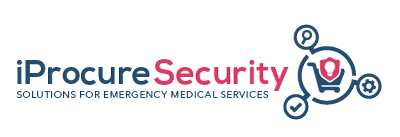483Terms
Help to improve our database
We are continuously collecting common terms used by the Emergency Medical Services practitioners across Europe. Help us improve our content and fill out the online form. If you are not able to find what you are looking for, please let us know by sending us a message through our contact page.
Your feedback is important for us and it will be fed into our Database for the EMS glossary.
Add new EMS termTo unify the communication and knowledge exchange between the emergency medical teams across Europe iProcureSecurity seeks to translate the identified EMS terms in all consortium languages.
That is why the project encourages everyone willing to contribute, to suggest and add missing terminology translation.
Add new translationiProcureSecurity Glossary
Also known as an intensive therapy unit or intensive treatment unit (ITU) or critical care unit (CCU), is a special department of a hospital or health care facility that provides intensive treatment medicine
The interconnection via the Internet of computing devices embedded in everyday objects, enabling them to send and receive data with the aim to enhance the emergency medical care from the beginning of the process till to the admission of the patient at the emergency room
Intubation is the process of inserting a tube, called an endotracheal tube (ET), through the mouth and then into the airway. This is done so that a patient can be placed on a ventilator to assist with breathing during anaesthesia, sedation, or severe illness.
Software application that allows EMS management staff to control ambulances' inventory in real time.
Normally a business entity created by two or more parties with the purpose to achieve a specific task, such as win a tender, PFI, PPP and so on
Procurement activities undertaken by two or more separate contracting authorities. Many different forms of joint procurement exist, e.g. occasional joint procurement, buying consortia and central purchasing arrangements.
A set of measures used to assess performance against agreed expectations. KPIs may relate to any aspect of a contract and may be associated with points or other incentive and/or penalty systems. An organisation may use KPIs to evaluate its own success, or to evaluate the success of a particular activity in which it is engaged
Need for having additional knowledge.
Refers to the first approx. 20% customers on the EU Internal Market in the market segment of the procurers that are deploying innovative solutions to tackle the challenge addressed by the PPI procurement. PPI shall result in the first application/commercialisation of innovative solutions, meaning that the solutions have to be new to the procurers’ market segment or new to the EU Internal Market, and relevant to procurers in other Member States and/or countries associated to Horizon 2020
Leadership principles serve as guidelines for commanders to ensure optimal leadership. They must be checked on an ongoing basis and implemented if applicable. Principles apply to all management levels. For example, the fire brigade defines the following principles: unity of leadership, clear goal, simplicity, formation of emphasis (formation of focal points), formation of reserves, freedom of action, mobility, economy of strength, and proportionality.

